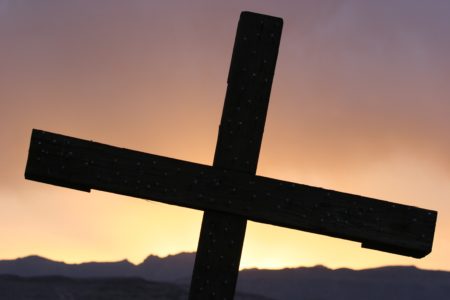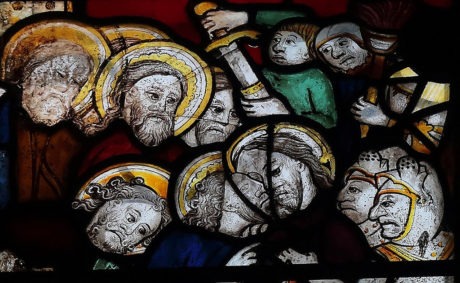God desires to be in relationship with you, a relationship that is more than a weekly ritual or something you do at a distance. God wants all of you. God wants the kind of commitment that compels you to be in the thick of things, to do whatever it takes in order that God might work in you and through you. That’s the kind of dedication that accepts no excuses—a whole-life commitment.
The Via Dolorosa, which means “the way of the cross,” is in the old city of Jerusalem. It is basically unchanged since the day Jesus walked it, carrying his cross to the place of his execution. The Via Dolorosa is made up of winding narrow streets and is filled with vendors who hawk their wares just as they did in Jesus’ time.
When I was thirteen, I visited Jerusalem, and we followed the Way of the Cross. It was a surreal experience for me. I noticed all the signs along the way proclaiming that this was the way that Jesus took to the cross; yet people were going about their business, carrying groceries, kids playing in the street. At the time of my visit, the execution site itself overlooked a bus station. It was loud and smelly. As I walked, I thought, “Does anybody really get it? Does anyone really understand what it means to walk the way of the cross?”
That question is as real for me now as it was thirty years ago, because that’s Jesus’ invitation to each of us. “If any of you wants to be my follower, you must put aside your selfish ambition, shoulder your cross, and follow me.” (Matthew 16:24). Following Jesus involves sacrifice; it can be painful, because the kingdom of Jesus is ruled not from a throne but from a cross. So many people hear this message, but so few act on it. Those who do act change the world.
The apostle Paul said, “I have been crucified with Christ” (Galatians 2:19). It’s not about following at a distance; it’s about a whole life commitment. Paul said, “I myself no longer live, but Christ lives in me” (Galatians 2:20).
I will do whatever it takes so that God can work in me and through me. I will do anything, even when there’s pain, even when it feels as though God is nowhere to be found, even when the diagnosis is not good, even when my spouse walks out, even when . . . I will walk side by side; I will give everything I have, because Jesus gave me everything he is. In his letter to the Roman church, Paul wrote, “I consider that the sufferings of this present time are not worth comparing with the glory about to be revealed to us” (Romans 8:18). Moving into the light takes passion. It’s about blood, sweat, and tears. The fire can be hot and the journey long. But it is the journey to which our Lord Jesus calls us; and it is a journey that provides immense rewards, both now and into eternity.
I pray that you would continue to follow Jesus, up close and in the thick of things. Will you single-mindedly give your all to God and experience the victory of God’s whole life commitment for you?
In her famous play-cycle, The Man Born to Be King, written for the BBC, Dorothy Sayers wrote:
[The disciples] had seen the strong hands of God twist the crown of thorns into a crown of glory, and in hands as strong as that they knew themselves safe. They had misunderstood practically everything Christ had ever said to them, but no matter: the thing made sense at last, and the meaning was far beyond anything they had dreamed. They had expected a walkover, and they beheld a victory; they had expected an earthly Messiah, and they beheld the Soul of Eternity (from The Man Born to Be King, in “The Triumph of Easter,” by Dorothy L. Sayers, as cited in Christianity Today, Vol. 41, No. 4).
I pray that in following Jesus, you will come to know the joy of his victory; that in carrying your cross as he did, you will experience new life as he did; that in standing close, you will behold the Soul of Eternity.









